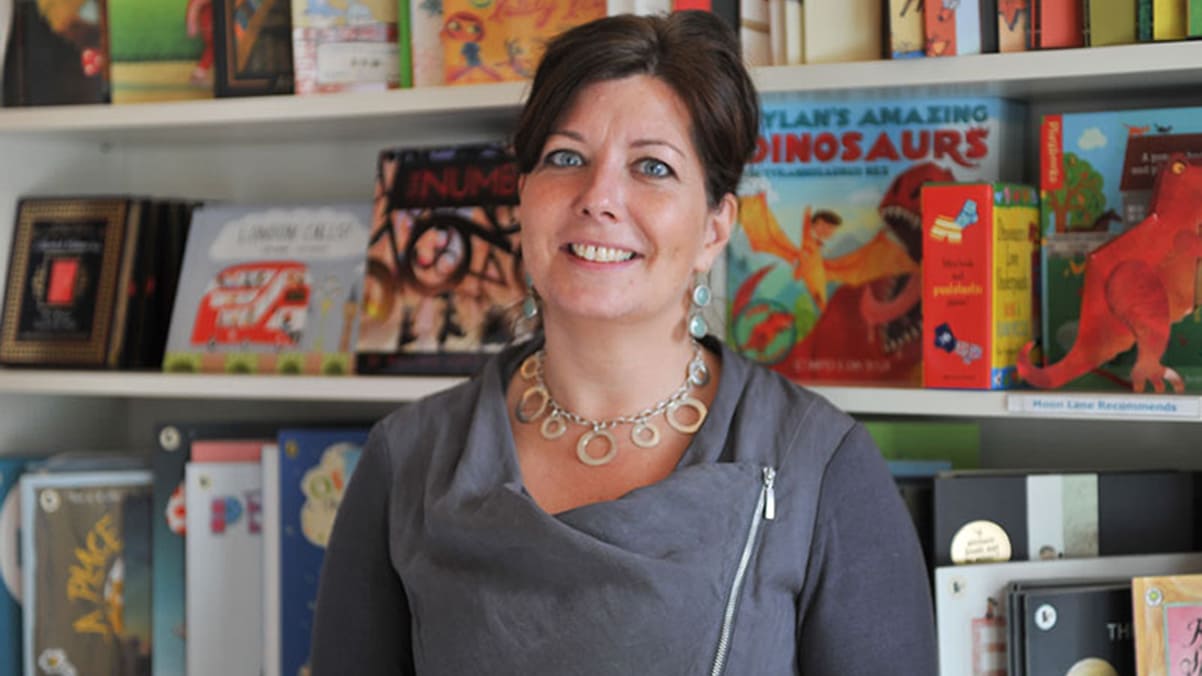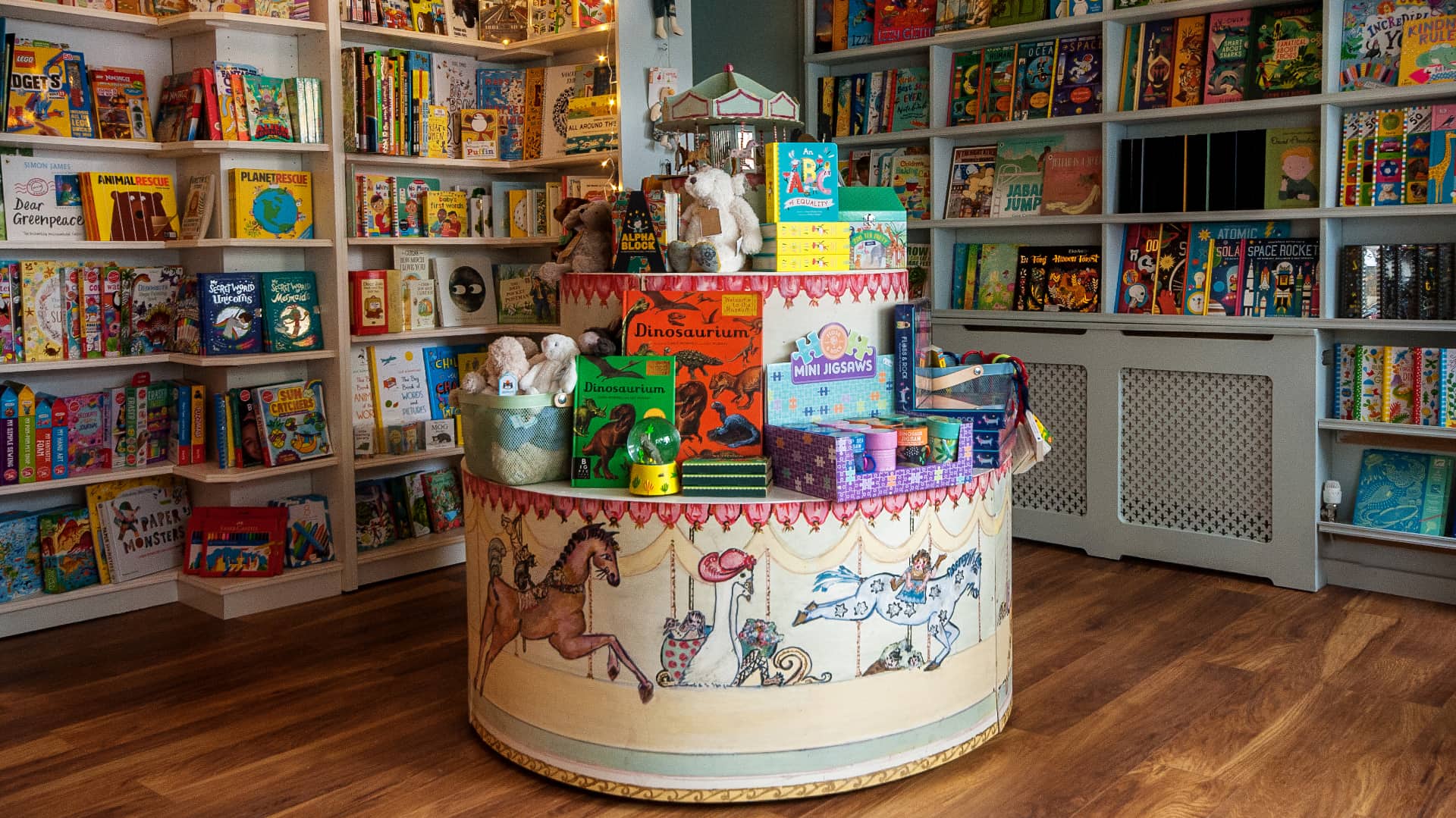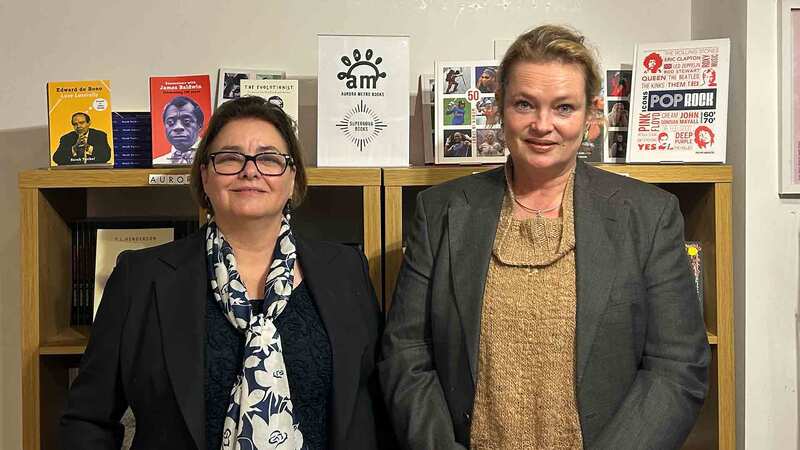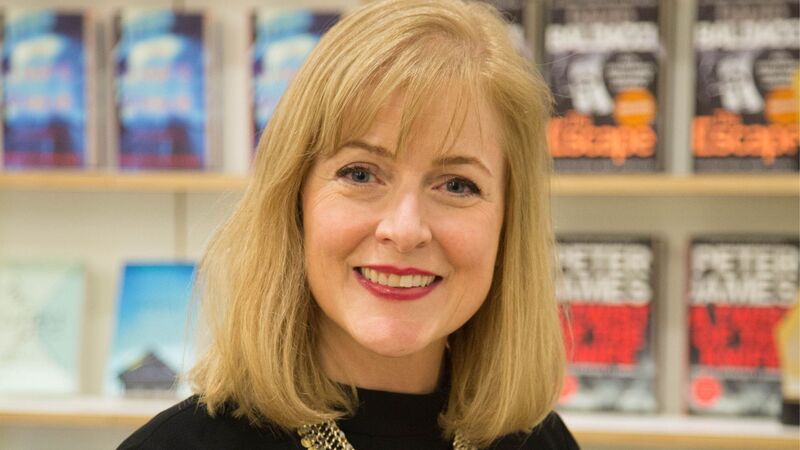You are viewing your 1 free article this month. Login to read more articles.
Macfarlane outlines Moon Lane’s mission and looks to franchises for global change
Community Interest Company Moon Lane is determined to change the children’s books scene for the better, as its estate continues to expand with a scaleable franchise model.
I catch Tamara Macfarlane, the founder of Moon Lane, on what sounds like an idyllic trip aboard a canal boat in the Brecon Beacons. She is on a writing holiday for her other job as a children’s author, putting the finishing touches on her second Dragon World title, part of a three-book deal with DK. I try to curb a pang of jealousy by asking about how cold it must be inside the boat—it is late autumn in Wales, after all—but she assures me it’s toasty and cosy because she has just lit a fire.
Still, it would be churlish to begrudge Macfarlane some “R&R” as she has put in a hard shift over the past few years. The children’s specialist Moon Lane business has been growing and the mini-empire now includes three UK shops: the original Tales of Moon Lane in Herne Hill; another London outpost in Catford; and the newest offering in Ramsgate, Kent, which was launched in 2019. Plus, there is the Moon Lane Education arm, headed by Leah Chin, which provides school book supply and runs events and festivals. Tying it all together is the Moon Lane Ink not-for-profit Community Interest Company (CIC), which drives its bedrock mission of tackling inequality and improving diversity in children’s books. And, as of February 2021, there is an international presence with the opening of a franchise store in Nanjing, China.
Readers of The Bookseller, or at the very least keen observers of our British Book Awards, may well be familiar with all this. Moon Lane’s long list of Nibbies includes twice winning Children’s Independent Bookshop of the Year (2008 and 2011), taking home Children’s Bookseller of the Year for three of the past five years, and in 2021 winning the overall Retailer of the Year, an award that has heretofore been the preserve of juggernaut chains such as Waterstones and W H Smith.
The laurels are all well deserved and something of a tonic for the entire team. But Macfarlane notes that this long pandemic has taken its toll: “I think maintaining a kind of positivity is difficult at the moment. The energy that’s involved for all of the team is one of the things that I think we are struggling with a bit, in that we’ve been so in the ‘one foot in front of the other’ situation as we keep having to adapt. It’s made us more resilient, though. We’re doing all we can to deal with what’s in front of us, but also holding at the back of our minds that we may go into lockdown again, and making sure that we have everything in place if that does happen.”
Niggles and worries aside, the business is starting to really crank up again, with sales at the moment reaching pre-Covid levels. This has been helped by tentative steps back to events, which has included its Moon Lane Non-Fiction Festival of Fun—it ran across all three shops in late October, was the first time it has done a dedicated events series solely on non-fiction, and the first joined-up festival it has run across the entire Moon Lane estate.
Macfarlane says: “It worked really well and it’s something we would really like to take out to other independents across the country, because it’s so important for children that aren’t readers already to have non-fiction festivals. They then can be drawn in by the subject matter and get into books via whatever their point of interest is; it’s a really good way of engaging new readers.”
This all seems very well planned out and for the most part it is, but the Ramsgate shop was initially something of an outlier. “OK, that was a bit insane,” Macfarlane says. “I can’t even pretend it was sensible. Ramsgate didn’t even have a bookshop, so it wasn’t really crying out for a specialist children’s one. The short story is we went on holiday there and I just fell in love with the place, on a visceral level. The longer, more complicated story is that we went to Kent because I had just bought a dog I wasn’t supposed to [have bought] and we had to go on holiday in the UK rather than the one we were planning abroad. I wasn’t the most popular person in my house.”
Macfarlane’s instincts were sound, as Ramsgate fits in with Moon Lane’s mission of improving diversity: some areas of the town have very low literacy rates and there is some deep socioeconomic deprivation. She adds: “We wanted to try to look at practical ways of breaking down the barriers [to reading] in Ramsgate, which are just as profound as those we are working on in London.”
On the move
Macfarlane grew up in Oxford until she was eight, but after her parents split up, she moved around a lot and ended up going to six different primary schools: “You do learn to make friends, and let them go quickly.” She was shy, with books her “salvation”, and has particularly fond memories of spending weekends in Blackwell’s, which at the time had a specialist children’s shop in Oxford. She went to Cambridge University to study literature and education. She says: “I think that was when the real kind of obsession started. Before, I was passionately involved with children’s books but hadn’t ever analysed them. This was the first time I really studied children’s books and began reflecting on what was in those books, what the messaging was and whose story was being told.”
After university she began teaching in a primary school and there was something of a trial run for Tales on Moon Lane when a parent donated money to her school and Macfarlane was able to set up a library from scratch. She opened Tales in 2003, but actually continued to work as a teacher for two years while also working in the shop, as she could not afford to get by on just one of the salaries.
The expansion and the launch of the CIC began in earnest about five years ago. Macfarlane says: “From day one with Tales it was about wanting to challenge the monoculture of children’s literature. But I got to the point where I was so frustrated with publishing that I felt I had to stop being a bookseller or find more practical ways to challenge things—because publishing seemed to be having the same conversations over and over without getting anywhere.” This coincided with Paul Chin—Leah Chin’s husband—coming aboard as co-owner and business partner. Paul Chin is originally from Jamaica and though his background is in running IT companies, Macfarlane says he “is as passionate about change [in kids’ books] as I am. It just meant we could take more risks and think bigger”.
One of those risks was the franchise agreement in China with LinMind Cultural Development, which came about after Macfarlane spoke at a bookselling and publishing event in Chengdu. A franchise model appeals to Macfarlane as “we were at this place where we were asking ourselves a lot of questions about scaling up. It would be great to, but to do that in the UK in a more traditional way is difficult, expensive, and I also realise I might not be the right person to lead that. Or do we stick with a franchise model where we have external investment, we are able to support and encourage people and give them the benefit of knowledge of our lovely team? To me, that is the preferred path. Hopefully this is the beginning of other franchises and other countries that at some point, we’ll be able to have a global conversation about children’s books and literature and the core human values in them, and what the messaging is that we’re sending out to our children.”
Photography © Storme Sabine.
















